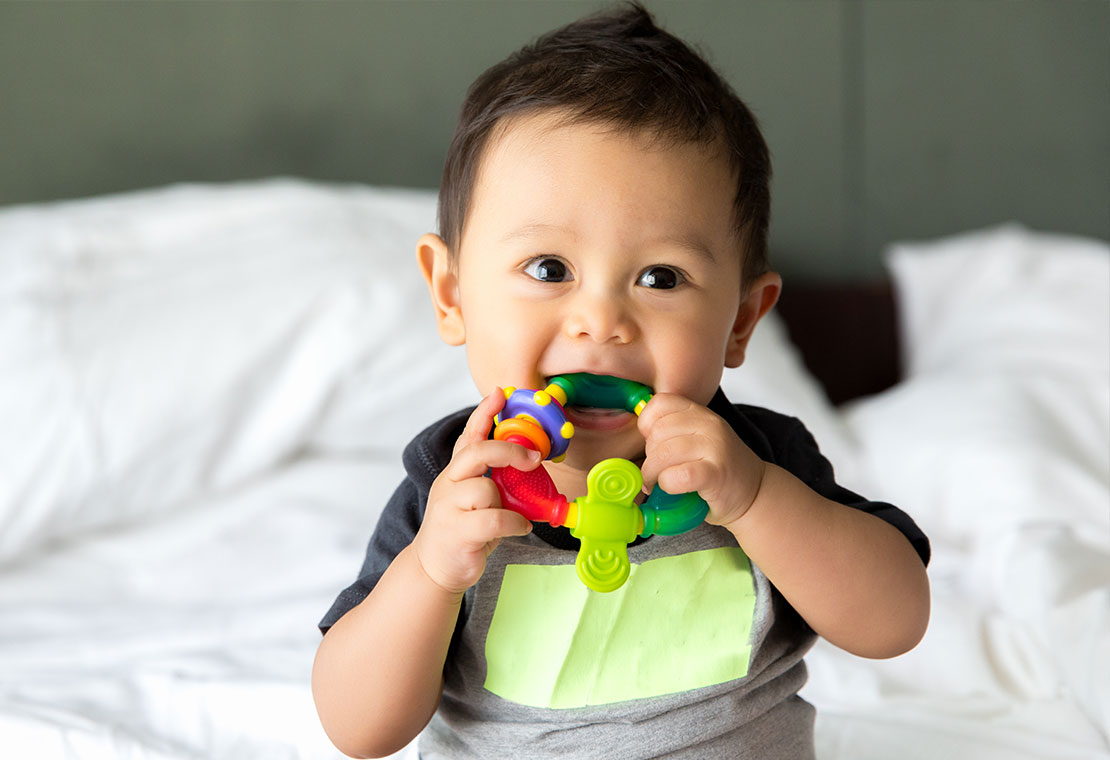Website Design by Clue Dental Marketing © . All rights reserved. Sitemap Privacy Policy
Your baby’s first dental visit is an important step toward a lifetime of healthy smiles. The American Academy of Pediatric Dentistry recommends that children see a dentist by their first tooth or first birthday. Starting early helps prevent problems and builds comfort with dental care from the very beginning.
At Naples Pediatric Dentistry, Dr. Marilyn Sandor and her team love helping parents feel confident about caring for their child’s teeth right from the start. We take time to get to know your family, answer questions, and share simple tips for daily care. Most importantly, we make the visit comfortable, positive, and fun for your child — so that every dental experience begins with trust.
For families who prefer extra flexibility, we also offer a virtual first visit. This is a great way for new parents to meet Dr. Sandor, ask questions about teething, thumb-sucking, feeding, fluoride, or cavity prevention, and learn how to care for a baby’s teeth — all from the comfort of home.
Many people don’t understand the importance of baby teeth. Primary teeth are necessary for children to chew and speak properly. They also hold the space for the permanent teeth to come in. If a primary tooth is lost too early, a permanent tooth can drift into the empty space. This makes it difficult for other permanent teeth to properly erupt into the mouth.
It is important to remember that cavities are contagious! The bacteria (usually Streptococcus mutans) can be transmitted from one person to another and from one tooth to another. If a primary tooth has an untreated cavity or infection, it can spread to the adjacent teeth and cause unnecessary damage.



Dr. Sandor in Naples, FL understands that many parents are hesitant about their baby's first dental visits due to anxiety or fears. Dr. Sandor will discuss with you the different levels of anesthesia and sedation to treat your baby in a manner that you will find comfortable.
Many people don’t understand the importance of baby teeth. Primary teeth are necessary for children to chew and speak properly. They also hold the space for the permanent teeth to come in. If a primary tooth is lost too early, a permanent tooth can drift into the empty space. This makes it difficult for other permanent teeth to properly erupt into the mouth.
It is important to remember that cavities are contagious! The bacteria (usually Streptococcus mutans) can be transmitted from one person to another and from one tooth to another. If a primary tooth has an untreated cavity or infection, it can spread to the adjacent teeth and cause unnecessary damage.
Primary (baby) teeth begin to erupt around the age of six months. All 20 primary teeth usually erupt by the time the child reaches the age of three. These primary teeth will begin to shed (fall out) between the ages of six and seven. They are then replaced by the child’s permanent teeth. The last primary teeth are usually lost around 12 years of age, and by age 13, most of the permanent teeth are in place.
Healthy snacking is important to help fight against dental caries (cavities). To snack healthy, please remember a few basic rules: